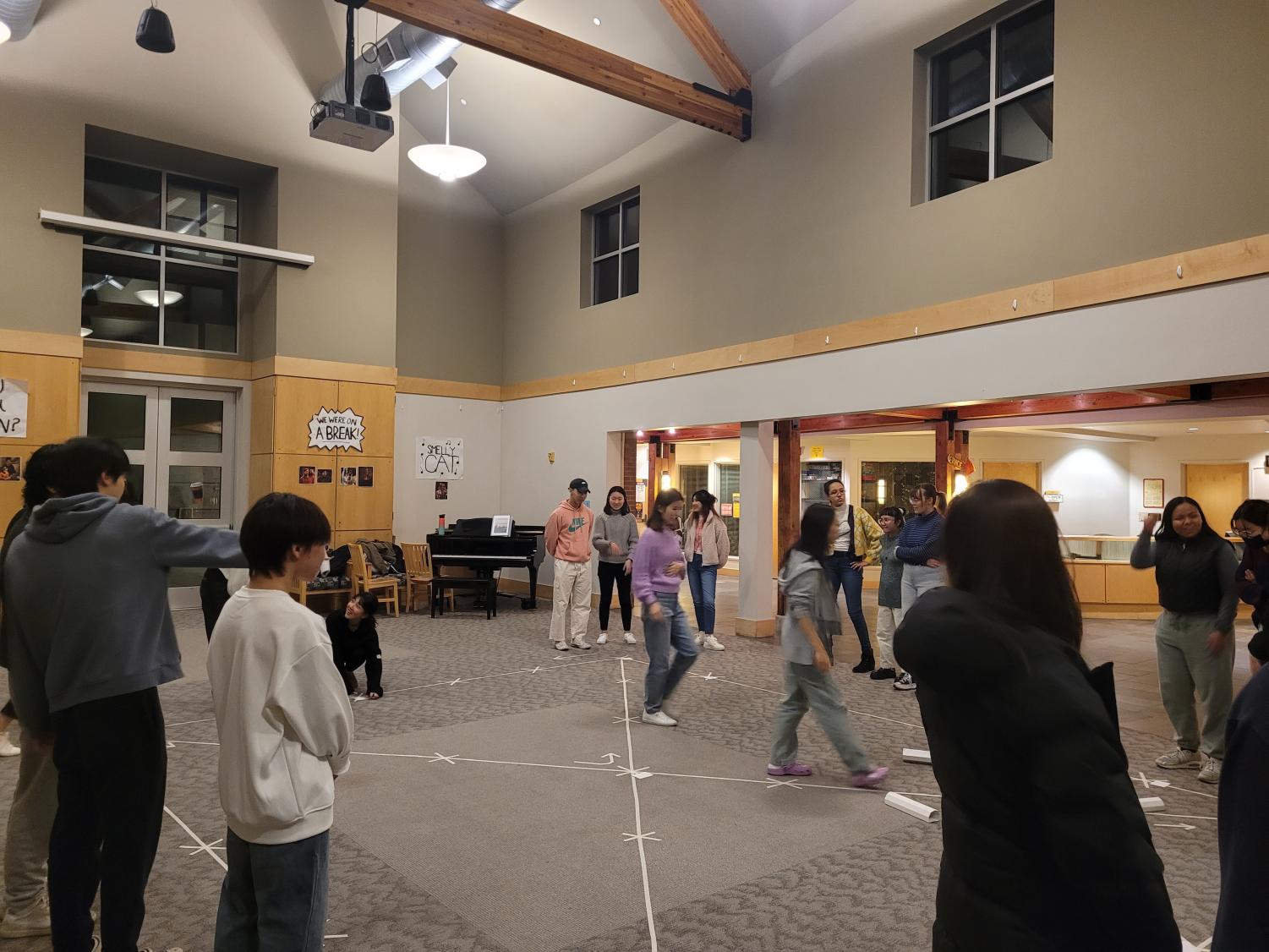Celebrating both cats and rabbits
SPU student cultural clubs share Lunar New Year traditions
February 10, 2023

The ball drops, people kiss and champagne bottles pop. These are the first few seconds of an American New Year’s Eve celebration. It follows the same Gregorian calendar Pope Gregory XIII first introduced in 1582. But in the non-western world, the new year is much different.
Lunar New Year is a holiday that follows the celestial path of the moon and the lunisolar calendar. In 2023, Lunar New Year took place on Jan. 22.
At Seattle Pacific University, the Asian American Student Association, Vietnamese Student Association and Korean Student Association hosted events to represent and share the diverse customs of the Asian student body.
On Thursday, Jan. 19, the three clubs collaborated with Gwin Commons and SPU Dining Services to serve food highlighting the many Asian-American backgrounds of SPU’s campus. Richard Rahardja, the marketing coordinator for the dining hall, grew up in Indonesia and is of Chinese Indonesian descent.
“Back home when I was in Indonesia, we would always celebrate Lunar New Year, which is why the event we had this week meant a lot. I got to celebrate it with our greater SPU community in place of my family,” Rahardja said.
Like in the U.S., families gather to enjoy food and spend time with each other. However, the ways people celebrate cannot be generalized. Each country and every family celebrates uniquely with their own traditions.
“It was really important that we symbolized all of the pillars of the cuisines. So, in collaboration with AASA, VSA and KSA, we drew upon dishes that really resonated with home for these students,” Rahardja said. “A big part of Chinese tradition for me is to eat noodles because they symbolize long life and longevity, so we made a big effort to get a Chinese stir-fried noodle on the menu.”
It seems food, at a table surrounded by friends and family, brings people together. Countries such as China, North and South Korea, Malaysia, the Philippines, Indonesia, Singapore, Brunei and Vietnam eat specific foods that symbolize the coming of the new year.
To keep in mind the many different traditions, AASA, VSA, and KSA hosted a joint event on Thursday, Feb. 2, to play games and eat typical foods of the many represented backgrounds.
Fourth year biochemistry major Vaughn Poon and president of AASA sought to help organize the event to include all students.
“We’re able to celebrate the same celebration but with different names such as Tết in Vietnamese culture. By collaborating with the different clubs, we’re able to get different perspectives,” Vaughn said.
In Vietnam, Lunar New Year is known as Tết. Third year interior design major Quynh Pham, president of VSA, shares that this year is a bit different than the others.
“One of the biggest differences from the Chinese Lunar New Year is that Vietnam celebrates the year of the cat, not the rabbit this year,” Pham said.
While Chinese cultures eat noodles on new years Korean cultures eat rice cakes. Second year applied science major David Lee explains the significance behind the difference.
“There’s this food called sultteok, and it’s a rice cake mixed with Korean rice wine. The alcohol cooks away when it’s done,” Lee said. “There’s also a rice cake soup called tteokguk. It’s traditional to eat it every new year. Rice cakes symbolize things like purity going into the next year.”
At the event, students played games like Vietnamese bầu cua tôm cá and Korean yunnori, eating Chinese White Rabbit candies and Korean ppeongtwigi rice crackers. Many of these items and activities are very personal to students, evoking feelings of nostalgia.
“It’s always scary though because people might judge the culture as we’re sharing it,” Lee said.
Many Asian American students share an all too similar childhood trauma: going to school with a packed lunch, sitting down at a table full of white Americans and the humiliation of eating something “different.”
So, to share traditions in food and games, while fun, is vulnerable. And no matter where, life is a constant exchange and mediation of backgrounds and beliefs. SPU’s clubs give small, very intimate glimpses into the lives of its students.
“There’s a lot of cultures here, so if you reach out to our clubs, we also want to learn more about you too. We teach you about ours and you can teach us about yours,” Pham said. “Despite the fact that we’re all different, we also share a lot of similarities.”
Like American New Year’s, there are resolutions. By recognizing this year’s Lunar New Year celebration, not only are they looking to improve personally, but they are looking to become better and more understanding together.
“Lunar New Year is really deeply rooted in tradition and usually depends on each and everyone’s families. It really displays putting your best foot forward as well as getting the time to spend with your family as well,” Rahardja said.

























































































